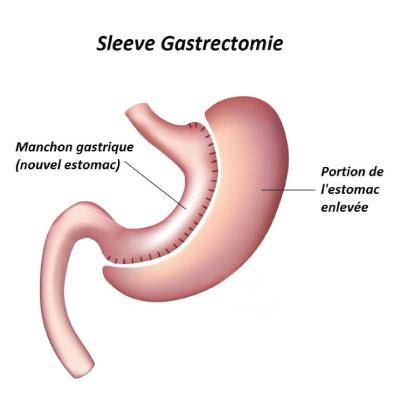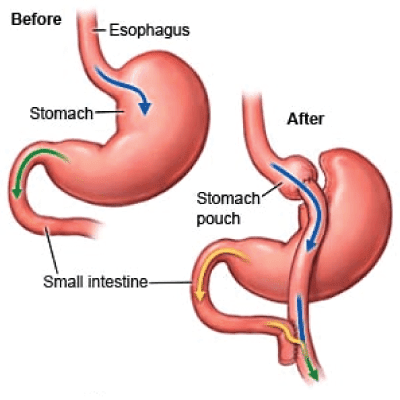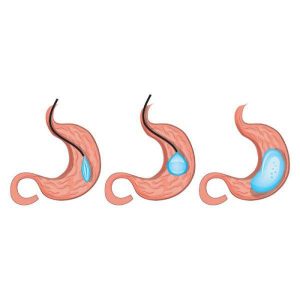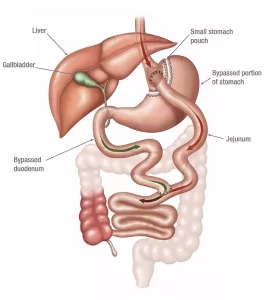Behavioral Therapy for Obesity
Table of Contents

Understanding Behavioral Therapy for Obesity: A Comprehensive Guide
As a behavioral therapist, I have seen first-hand the devastating impact that obesity can have on a person’s physical health, mental well-being, and overall quality of life. Obesity is a complex condition that is often caused by a combination of genetic, environmental, and psychological factors. While there is no one-size-fits-all solution to weight loss, behavioral therapy has been shown to be an effective treatment for obesity. In this comprehensive guide, I will explain what behavioral therapy is, how it works, and how it can be used to treat obesity.
Introduction to Behavioral Therapy for Obesity
Behavioral therapy is a type of psychotherapy that focuses on changing unhealthy behaviors and thought patterns. The goal of behavioral therapy is to help individuals develop new skills and coping strategies that will enable them to make positive changes in their lives. Behavioral therapy is often used to treat a variety of mental health conditions, including anxiety, depression, and addiction. However, it can also be used to treat physical health conditions, such as obesity.
Obesity is defined as having a body mass index (BMI) of 30 or higher. It is a major public health concern that affects millions of people worldwide. Obesity is associated with a range of health problems, including heart disease, diabetes, and certain types of cancer. In addition to the physical health risks, obesity can also have a negative impact on a person’s mental health, self-esteem, and quality of life.
Understanding the Causes of Obesity
There are many factors that can contribute to the development of obesity. These include genetic, environmental, and psychological factors. Some people may have a genetic predisposition to obesity, which means that they are more likely to gain weight than others. Environmental factors, such as a sedentary lifestyle and a diet high in calories and fat, can also contribute to the development of obesity. Psychological factors, such as stress, depression, and anxiety, can also play a role in the development of obesity.
How Behavioral Therapy Works for Obesity
Behavioral therapy for obesity works by helping individuals develop new skills and coping strategies that will enable them to make positive changes in their lives. The goal of behavioral therapy is to change unhealthy behaviors and thought patterns that contribute to the development of obesity. Behavioral therapy is often used in combination with other weight loss treatments, such as diet and exercise.
The Role of a Behavioral Therapist in Treating Obesity
A behavioral therapist plays an important role in the treatment of obesity. A behavioral therapist is a trained mental health professional who specializes in the treatment of behavioral disorders. The role of a behavioral therapist in the treatment of obesity is to help individuals develop new skills and coping strategies that will enable them to make positive changes in their lives. A behavioral therapist can also help individuals identify and address the psychological factors that contribute to the development of obesity.

Techniques Used in Behavioral Therapy for Obesity
There are many techniques that can be used in behavioral therapy for obesity. These techniques are designed to help individuals develop new skills and coping strategies that will enable them to make positive changes in their lives. Some of the techniques used in behavioral therapy for obesity include:
Setting Achievable Goals for Weight Loss
Setting achievable goals for weight loss is an important part of behavioral therapy for obesity. Goals should be specific, measurable, attainable, relevant, and time-bound. Setting achievable goals can help individuals stay motivated and track their progress.
Identifying Triggers and Creating Coping Strategies
Identifying triggers and creating coping strategies is another important part of behavioral therapy for obesity. Triggers are situations or events that can lead to unhealthy behaviors, such as overeating. Coping strategies are skills and techniques that can help individuals manage their emotions and behaviors in response to triggers.
Developing Healthy Eating Habits through Behavioral Therapy
Developing healthy eating habits is a key part of behavioral therapy for obesity. Behavioral therapy can help individuals develop new skills and coping strategies that will enable them to make healthier food choices. This may include learning how to read food labels, planning meals in advance, and practicing mindful eating.
Incorporating Physical Activity into Your Lifestyle
Incorporating physical activity into your lifestyle is another important part of behavioral therapy for obesity. Physical activity can help individuals lose weight, improve their overall health, and reduce their risk of developing chronic diseases. Behavioral therapy can help individuals develop new skills and coping strategies that will enable them to make physical activity a regular part of their daily routine.
Overcoming Setbacks and Staying Motivated
Overcoming setbacks and staying motivated is an important part of weight loss. Behavioral therapy can help individuals develop new skills and coping strategies that will enable them to overcome setbacks and stay motivated. This may include learning how to reframe negative thoughts, practicing self-compassion, and setting realistic expectations.
Success Stories of Using Behavioral Therapy for Weight Loss
There are many success stories of individuals who have used behavioral therapy to lose weight and improve their overall health. One example is a woman who struggled with emotional eating and binge eating. Through behavioral therapy, she was able to identify her triggers and develop coping strategies that helped her manage her emotions and behaviors. She also learned how to make healthier food choices and incorporate physical activity into her daily routine. Over time, she was able to lose weight and improve her overall health.
Finding a Behavioral Therapist for Obesity Treatment
If you are interested in using behavioral therapy to treat obesity, it is important to find a qualified behavioral therapist. You can start by asking your primary care physician for a referral. You can also search online for behavioral therapists who specialize in the treatment of obesity.
Other Weight Loss Treatments That Can Be Used in Combination with Behavioral Therapy
Behavioral therapy is often used in combination with other weight loss treatments, such as diet and exercise. Other weight loss treatments that may be used in combination with behavioral therapy include:
- Bariatric surgery
- Medications
- Nutrition counseling
Conclusion and Future Outlook on Behavioral Therapy for Obesity
In conclusion, behavioral therapy is an effective treatment for obesity. It works by helping individuals develop new skills and coping strategies that will enable them to make positive changes in their lives. Behavioral therapy is often used in combination with other weight loss treatments, such as diet and exercise. If you are interested in using behavioral therapy to treat obesity, it is important to find a qualified behavioral therapist who specializes in the treatment of obesity. With the right support and guidance, you can achieve your weight loss goals and improve your overall health and well-being.



















